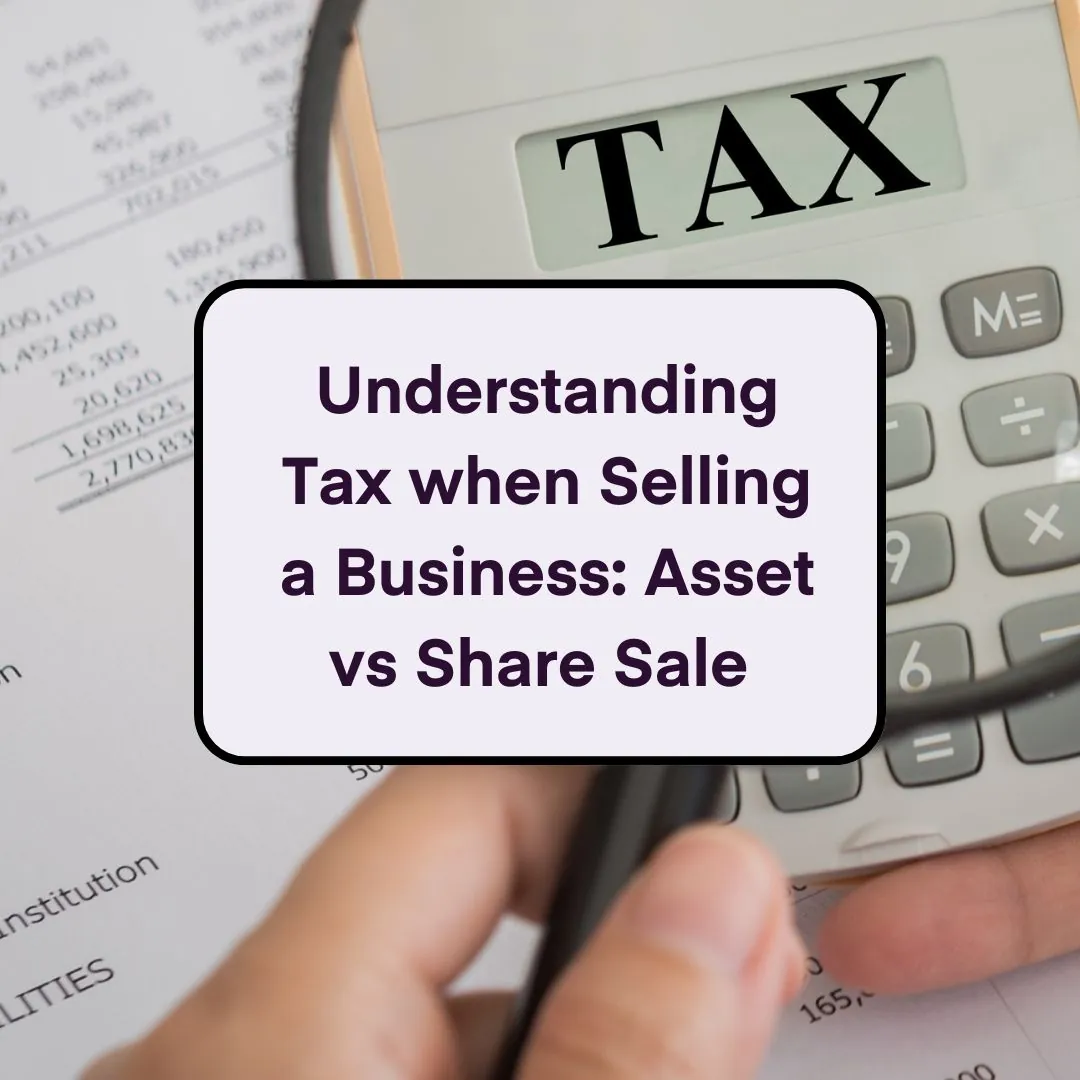
Company car tax loopholes: How to avoid a tax charge
14 Mar 2021Employees often see company cars, or the use of any employer-owned vehicle, as a worthwhile and useful perk able to add a degree of personal benefit to certain roles. Though when observed a little closer, calculating company car tax can leave a lot of people staring at surprisingly large tax bills.
There are several reasons why opting into a company car plan can quickly become an additional and unwanted expense, which is why informed employers and staff look to navigate clever company car tax loopholes to ensure they’re getting a good deal without putting a strain on anybody’s finances.
Between lowered rates for certain types of vehicles, breaks for reduced emissions and intelligent ways to classify employer-owned cars to avoid spikes in overall expected taxes, this guide will explain company car tax in the UK and the best ways that people can avoid unexpectedly large tax charges.
How does company car tax work?
A company car is described as any vehicle allocated to staff by their employer as a company benefit or perk in addition to their annual salary. To be officially classed as a company car, employees must be permitted to use the vehicle in their personal time as well as within normal working hours, for commuting and for engaging in official company business. HMRC views this asset as a taxable perk.
How much company car tax will I pay?
The amount of company car tax an employee is expected to pay will depend on a number of determining factors, with the biggest contributors including:
-
Expected annual income
-
The CO2 emission bracket of the car
-
The value of the vehicle as described in its P11D Form (% of the car’s official price)
Additional charges may be accrued depending on the type of fuel the vehicle uses, for example, diesel vehicles are often affected by surcharges due to emitting higher levels of CO2, whilst electric cars may be exempt from tax in some districts and situations.
In an effort to reduce the levels of pollution across the UK and Europe, all road-worthy vehicles are assigned a CO2 emission band, with this label greatly affecting the Benefit in Kind (BIK) rate all employees driving company cars are expected to pay.
CO2 emission bands account for the amount of CO2 released by vehicles in g/km, with tax charges increasing incrementally as this value rises. Currently, BIK rates for fuel-powered company cars range from around 22% for vehicles emitting 85-89 g/km all the way up to 37% for emissions of 170 g/km or more.
Related: Tax Debate: Company car or car allowance?
What is a pool car?
One way to avoid some tax charges aimed at the use of company cars is to officially classify the vehicle as a pool car. The main difference here is that the vehicle will be treated as an employer-owned car loaned to employees only for use during working hours, with no availability for private use.
As the employee is not permitted to use a pool car outside of official company business, HMRC will not treat it as an employment-related benefit, resulting in a reduced BIK rate and less payable tax.
Classifying an employer-owned vehicle as a pool car, however, will require business owners to meet several well-defined conditions that if not adhered to could result in serious issues with HMRC.
The conditions outlined by HMRC are as follows:
-
The vehicle must have been available to, and used by, more than one employee
-
The vehicle was made available to employees only for the purpose of their employment
-
The vehicle was not used for private means by one employee to the exclusion of others
-
Any private use of the vehicle was merely incidental to official company business
-
The vehicle was not stored overnight on, or in the vicinity of, any residential premises in which any of the employees were residing except while being kept overnight on premises occupied by the person making the vehicle available
These guidelines may appear fairly straightforward at a glance, but there is some room for interpretation that could land employers in hot water. For example, if an employee is required to make a long business journey and chooses to store the pool car at home to make an early start, would this be deemed an incidental or a private use of the car?
HMRC claims that this would be treated as incidental if a recorded reservation was made, though private if no such record exists, so employers are advised to keep detailed logs regarding pool cars.
Are vans exempt from company car tax?
Some employees and business owners may wonder whether company car tax can be reduced or even avoided by simply changing the style of vehicle included in their plan. Unfortunately, the rules assigned to vans are almost identical to those attributed to cars, though there are some exemptions.
Company-owned vans will be exempt from company car tax if the vehicle is only used for official business journeys or as a dedicated pool vehicle, though unique to vans, business journeys can include:
-
Travelling to appointments (visiting clients, engaging in documented company business etc)
-
Travelling to a temporary workplace (visiting construction sites, client’s homes etc)
Additionally, small private journeys may also be exempt from company car tax when operating a company-owned van, this includes detours to pick up private goods such as coffees, newspapers etc.
Company car tax on electric cars
So, if pool vehicles are exempt from company car tax, diesel vehicles are known to result in additional charges and there are minimal differences between choosing to operate cars and vans, how much tax will I pay for a company car with an electric-powered engine?
Whilst the UK hasn’t made electric vehicles entirely exempt from company car tax as of yet, the rate of tax accrued by fully electric vehicles will be much lower than any other style of car or van. Currently, electric vehicles are exempt from paying Vehicle Excise Duty (VED) until 2025 at the earliest, with BIK tax rates fixed at only 2% for the duration of the 2023/24 and 2024/25 tax years.
Though these rates will be subject to change from 2025 onwards, fully electric vehicles emit far less CO2 than either petrol or diesel cars and vans, meaning the expected tax rate for the use of electric company cars is likely to remain much lower than comparable fuel-fed vehicles far beyond this date.
Using a company car tax calculator UK
How much tax will I pay on company car expenses? The simplest way to work this out is to calculate the unique BIK rate associated with your particular vehicle. This can be easily achieved by finding the make, model and fuel type of the vehicle and comparing this information to current C02 brands.
Relevant CO2 emission values are separated into 18 bands ranging from low emission vehicles with values of between 0-50 g/km to high emission vehicles with values of 170 g/km or more. Additionally, all diesel vehicles will see an extra 4% surcharge added to their initially calculated CO2 band rates.
This percentage is then multiplied by the official RRP of the vehicle as outlined in its associated P11D form, with the resulting BIK value then multiplied again using the employee’s personal income bracket.
For instance, if you pay 40% income tax, you’ll be expected to pay 40% of the vehicle’s P11D value.
Below is an example of how company car tax is calculated by HMRC:
-
P11D value (RRP) - £25,000
-
Calculated CO2 emissions – 100 g/km
-
Fuel type – petrol
-
Income tax bracket – 40%
According to current CO2 bands, a vehicle emitting 100 g/km using petrol fuel equates to a 25% rate, this means the vehicle's P11D value will be multiplied by 25% to calculate the BIK amount.
£25,000 x 40% = £6,250
Finally, multiply the BIK amount by your income tax bracket to work out how much company car tax will be expected.
£6.250 x 40% = £2500 company car tax expected for the financial year.
Alternatively, you can work out how much tax for company car use will be expected by using an official HMRC company car and car fuel benefit calculator, an example of which can be found here.
Tips for lowering company car tax
Though most of the calculations required to work out company car tax values are difficult to alter, there are a number of things business owners and employees can do to help reduce expected costs.
Primarily, opting for a cheaper vehicle with low CO2 emissions will result in a greatly reduced final company car tax value, as will having employees contribute to the initial RRP of the car. Additionally, ensuring that vehicles are only accessible to staff within allocated working hours or as a part-time company car will help to keep overall company car tax values low.
Further considerations include:
-
Optional extras – Some optional extras such as larger wheels, tow bars and panoramic roofs can contribute to increased CO2 emissions and fuel consumption, raising overall tax rates
-
Business edition fleets – Some manufacturers offer specific versions of their cars tailor-made for large orders of company vehicles; these models often feature basic specifications and discounts for bulk orders with a reduced RRP to help minimise resulting BIK rates
-
Vans and pickup trucks – As previously mentioned, vans can provide business owners with a few benefits not found when choosing a company car, one of which being that their taxable value is fixed at £3,600, meaning if your company car is expected to cost more than this a van or double-cab pickup truck may end up being a more cost-effective long-term solution
Final word
As with most tax-related calculations, working out how much company car tax will need to be paid for any particular vehicle can be quite confusing, though with the right information at hand, it’s far from impossible to find out how much tax HMRC will expect and what can be done to lower that value.
Choosing cheaper vehicles with low CO2 emissions will be the easiest way to reduce company car tax, though additional discounts may be achieved by operating vehicles as pool cars, investing in electric cars or by opting for a van or pickup truck if your estimated company car tax exceeds their fixed taxable value.
Before finalising any proposed company car plan, get in touch with our friendly accountants or use a car tax calculator or the equations provided in this guide to estimate how much tax you’ll be expected to pay, and consider whether any of the tips we’ve covered can help you to lower that value and ultimately avoid any unnecessarily large tax charges.
For more advice on the subject, or for any tax, accounting or legal business advice, get in touch with us on 0207 043 4000 or info@accountsandlegal.co.uk.























